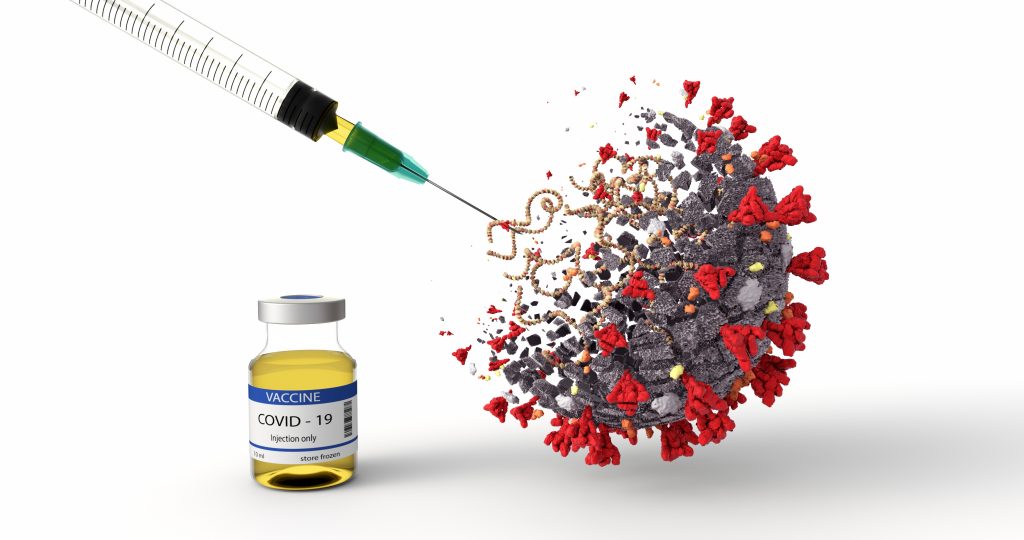Commonwealth Chemistry’s first President-Elect, Vicki Gardiner, formally takes up her role in May this year. Here, she shares her ambitions for the Federation
“I always describe chemistry as an enabling science and that allows great things to happen,” says Dr Vicki Gardiner, President-Elect of the recently formed Federation of Commonwealth Chemical Sciences Societies – Commonwealth Chemistry for short.
“There are so many exciting areas within chemical sciences. I’ve been involved in a number of different sectors that are reliant on chemistry. I truly believe that chemistry benefits society, through both economic contributions from new industries and the opportunity for higher levels of education attainment for a technology-ready future.”
Vicki will be the first President of Commonwealth Chemistry, a partnership of over 40 Commonwealth countries whose mission is ‘to inspire, celebrate and elevate the role and practice of the chemical sciences for the benefit of Commonwealth nations and their people’.
Uniting around the UN Sustainable Development Goals
‘One community, one voice, catalysing equality for all’ is the vision of Commonwealth Chemistry.
“My ambition for Commonwealth Chemistry is that it becomes an inclusive and influential organisation. I see Commonwealth Chemistry enhancing the reputation of the profession in terms of impacting the global community, and assisting member societies in providing value to their members and local country and region. Also, I want us, as a collective, to increase the diversity of our profession though actively offering opportunities and support for individuals throughout their career,” Vicki explains. “I look forward to seeing us achieve this by being a conduit that connects researchers, teachers, industry and decision makers.”

Commonwealth Chemistry represents an important step forward in elevating the profession and role of the chemical sciences in tackling the shared problems set out in the UN Sustainable Development Goals (SDGs).
The countries that make up the Commonwealth are rich in diversity, culture, opportunities and geographic location. While united around the SDGs, each country brings its own perspective, challenges and solutions that are unique to its peoples and geography.
Small Island Developing States (SIDS), for example, are particularly vulnerable to natural hazards like earthquakes and hurricanes, as well as the impact of tourism – 166 million tonnes of waste alone is estimated to be generated annually by visitors to the Caribbean1. And Commonwealth countries whose existing and emerging economies rely heavily on exporting oil and gas have been severely impacted by the COVID-19 pandemic2. It further highlights the urgent need to transition from fossil-based (coal, oil and gas) to renewable and low carbon sources of energy (e.g., wind, solar, biofuels), and from a linear to a circular economy for waste management.
Such diversity in experience and context is what Vicki hopes will position Commonwealth Chemistry as a powerful voice for the chemical sciences and trusted advocate that offers scientific options, cognisant of cultural and economic differences.

“Chemistry always has played, and will continue to play, an important role in global development. If you look at the UN Sustainable Development Goals, you would be hard pressed to find many where chemistry does not have an impact. And look at the past year – chemical sciences have underpinned the development of COVID-19 vaccines.
“Just like the Commonwealth, Commonwealth Chemistry is committed to progressing the UN SDGs through sharing research and building impactful relationships throughout the chemistry community. For example, our congress programme is based on key SDG topics such as good health and wellbeing, clean water and sanitation and affordable and clean energy.”
A meeting of minds – and action
One of the ways in which Commonwealth Chemistry galvanises the chemical sciences community around the SDGs is through its congresses. Postponed from May 2020, the first Congress is now taking place as a virtual event in May 2021.
The programme includes panel discussions and scientific talks on the SDGs, a chance for early career chemists to present their research, and standalone events on the topics of commercialising chemical sciences research, and gender equality.
“Commonwealth Chemistry is dedicated to being an inclusive Federation,” says Vicki. “What is important is that we actively lead in this area and put in place the governance and systems that ensures inclusion.

“The Executive Board has been established to have representation across cultures, genders and age. We have also taken a conscious approach on gender inclusion aiming for at least one-third participation of women. This was achieved across all countries in the 2020 early career chemist poster event.
“While we actively instill an inclusive culture within Commonwealth Chemistry that leads to better decision making, we can also assist our member societies and associates to increase inclusion and diversity in our profession at a more local level through sharing best practice.”
Valuable insights for early career chemists
Turning research into real-world application is another challenge that is close to Vicki’s heart.
“For the global community to benefit from much of the research undertaken within the SDGs, it is imperative that industry and researchers come together to find ways that discoveries can be translated into sustainable, fit-for-purpose solutions. This includes financial sustainability,” says Vicki.
“Building the capability of young researchers to increase the chances of their research making a positive impact on society is an important role for Commonwealth Chemistry. It’s also important that we connect industry with the great minds of teachers that inspire the future pipeline of scientists.”
“I’m looking forward to bringing so many different views together at this year’s congress, and seeing all the new connections form,” says Vicki. “I’m also really excited about the focus on early career chemists. Through sponsoring and mentoring those who are at this career stage, we will increase diversity across the profession and strengthen it further with divergent and out-of-the-box thinking.”
Early career scientists face a number of challenges that are well documented and chime with Vicki’s personal experience too. Having started as an Australian Research Council Postdoctoral Fellow at the University of Tasmania – a government funded position – Vicki was unsuccessful in securing further government funding at the end of her tenure.
“I don’t really remember having a mentor at that point so I believe there is a real role for professional associations to make sure that young practitioners are able to build networks for peer support and mentoring,” she says.
“I went from academia to government to industry, and then to not-for-profit sectors as I chose to take a leadership and management career pathway. While there are decisions I would probably change if I had an option, I’ve enjoyed and learned from all my career stages. What I want to tell a younger me is that change and uncertainty is not something to be afraid of … and to not worry too much.”
Transferrable skills lead to new opportunities
In a career that has spanned industry, government and academia, Vicki has acquired a breadth of knowledge that she will use to raise the profile of Commonwealth Chemistry.
“While I no longer work in a lab, the transferable professional skills that I developed during my time at university and beyond have allowed me to build a career as an influencer in science, technology, and engineering. Importantly, the experience I gained as a volunteer in the Royal Australian Chemical Institute, including as President (2018-2020), has greatly assisted my career and enabled me to build networks that I could never have imagined 20 years ago.”
There are many interactions that Vicki happily recalls from her working life, like the time she gained a new best friend in a mushroom farmer who was inspired by her knowledge of soil pH. And then there was Jean-Michel Cousteau (slightly more high profile), who Vicki met when she was developing a range of cosmetic ingredients from seaweed. “He visited our company for a few days and ended up putting his name to a product range that included our ingredients. I got to spend a whole day with him while driving around to schools in our area where he gave talks, including my kids’ primary school.”

“The best thing that chemistry has given me is the ability to think logically and critically. This gave me a reputation as a trusted advisor to government and politicians. Coming from a small community, it was great to be able to walk down the road and wave ‘g’day’ to the State Premier.”
As we move into a new year filled with uncertainty as well as hope, Commonwealth Chemistry’s ethos seems evermore poignant: ‘to leave no one behind’.
“The guiding principles of Commonwealth Chemistry are equal and inclusive representation from all Commonwealth nations and recognition that those with greater resources will contribute more in order to assist those with fewer resources,” says Vicki.
There has never been a more urgent need for the international chemical sciences community to unite for the benefit of all Commonwealth nations.
1 Taking the fight to the frontline: Island states unite to end pollution, press release, United Nations, June 2019
2 Natural Resource Insights, policy paper, The Commonwealth, 2020
****************
You can read more from Vicki in her opinion piece for Chemistry World.
